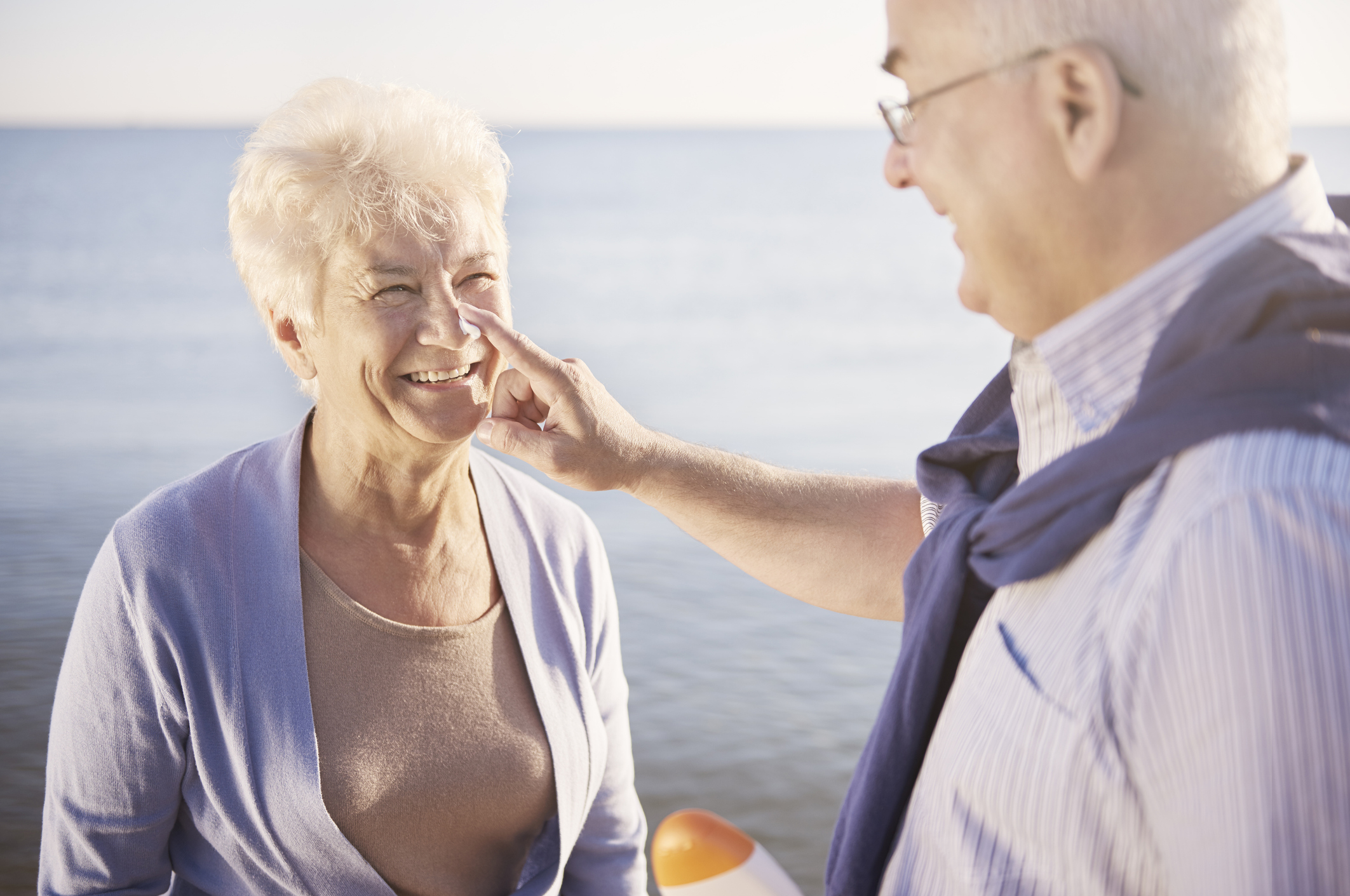For those living in northern climes, the warm summer months are to be savored by spending as much time outdoors as possible enjoying the sights, sounds, and activities that clear skies and hotter temperatures offer. But while outdoors, even on overcast days, it’s important to protect the skin from harmful sunlight that can lead to premature aging or skin cancer, and refresh your bottles of sunscreen each year to make sure they are safe and effective.
Each year more than 5 million cases of skin cancer are diagnosed in the United States making it the most common cancer in America. Skin cancer is also the most preventable form of cancer and the large majority are as a result of exposure to ultraviolet radiation from the sun. Using sunscreen, covering up with light layers, wide-brimmed hats, and sunglasses, and screening for any new or usual skin changes can help prevent skin cancer or catch it early when it is most treatable.
While you are planning a road trip or other outdoor adventure this summer, it’s important to make sure you have plenty of water, snacks, and of course sunscreen. Recent testing of sunscreens and after-sun care products found that 78 different products available in the U.S. contained benzene, a potential carcinogen. According to Dermatology Times, the Centers for Disease Control and Prevention and the World Health Organization classify benzene as a known cause of cancer in humans. Exposure to benzene can include inhalation, skin absorption, ingestion, and skin and/or eye contact.
Benzene is associated with blood cancers such as leukemia and experts say there is not a safe level of the carcinogen that can exist in sunscreen or other products like hand sanitizer that are absorbed through the skin. There is also evidence that certain sunscreen products and benzene pose a risk to marine ecosystems and waterways. Mineral or physical sunblocks such as zinc oxide or titanium dioxide that do not contain chemicals that can damage coral reefs or fish reproduction are a safer choice.
It is also important to note that not all sunscreen products contain benzene and dermatologists strongly recommend using a broad-spectrum, water-resistant sunscreen with an SPF of 30 or higher on exposed skin while outdoors to reduce the risk for skin cancer. Follow this link to view a list of sunscreen products in which benzene was not detected through initial analysis.
Learn more about how to choose safe and effective sun protection by following this link to the David Suzuki Foundation.






Add Your Voice
0 Comments
Join the Discussion